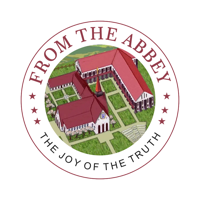Fourth Sunday of Advent: The Week of Charity
This past weekend, my family was watching the movie “The Year Without a Santa Clause.” Early in the movie, one of the characters says, “No Santa Clause? Christmas would have no meaning!” My nine-year-old daughter immediately said, “That’s not true! Jesus’ birth is the meaning of Christmas!” I guess we’re doing something right.
Later in the movie, Mrs. Clause claims the meaning of Christmas isn’t just the presents, it’s the “cheer and good will that Santa brings.” Following my daughter’s proclamation, Mrs. Clause’s attempt to find “real meaning” in Christmas beyond getting more stuff sounded hollow.
The theme for the fourth week of Advent is charity. The charity that comes from grace – that comes from Jesus – is the source of “goodwill” our culture touts as the “meaning of Christmas.” The time of Advent moves from hope to increasing levels of joyful anticipation. While Gaudete Sunday gets special recognition as a shift in the season, the tone of this final week of Advent is even more joyful. This week we celebrate the fulfillment of Salvation History.
In the Fullness of Time
Starting with Abraham, God has led humanity through the stages of rebuilding the broken Covenant relationship. Through Abraham and his descendants (known in Jewish tradition as the “Patriarchs”) He rebuilds the trust that the Fall damaged in Adam and Eve. Through Moses He builds on that trust and draws the Hebrew People into deeper intimacy with Him. Through the rest of the Old Testament He builds on trust and intimacy and teaches the Hebrew people what it means to live in a committed covenantal relationship. The Hebrew People really struggled with this last lesson.
But at the time of Jesus’ birth, they had learned the lesson of commitment really well. Not wanting to get even close to breaking any of God’s Laws, they had built a whole set of man-made laws as a “hedge” around the Laws of Moses. Certain groups such as the Scribes, Pharisees, and Sadducees were especially strict about keeping these laws to the letter. The Jewish people had learned their lesson about infidelity to the Covenant. They had suffered exile because of their inability to stay committed to God. They were constantly drawn to other gods, so in the end God gave them what they wanted. He let them go, and they were conquered and exiled by the Babylonians and then by the Persians. In the end, the tribe of Judah was the only tribe left fully intact. Now conquered by the Romans the Judeans (“Jews”) committed themselves to faith in God, to following the Law, and to awaiting the Messiah.
So the time was right for humanity to learn the final lesson in rebuilding the Covenant relationship. Trust, intimacy and commitment are the building blocks of love. And “in the fullness of time (Galatians 4:4), Jesus came into the world to teach us how to love.
Beyond Human Love
Every dimension of Jesus’ life taught us about love. His Incarnation teaches us how much God loves us. His earthly ministry not only reinforced God’s love for us, but also gave us an example for loving others. His teachings are all about how to love. What’s most surprising in this mystery of love is our Lord’s Crucifixion and Resurrection. Obviously the Passion of our Lord is a sign of God’s love for us. But after the Resurrection, Jesus throws us a curve ball. He tells us, “A new commandment I give you – love one another as I have loved you.” Jesus is commanding us to love as He did on the Cross – by giving ourselves to others as a total gift.
Jesus calls us to love – not just as a human emotion, a human experience, or a human choice – but with the very love of God. Of course, we can’t do this on our own. We need to make the choice to love as completely as we can, but we make that choice in the context of our relationship with God. We call on His grace so that we can love others not just with our own heart, but also with His. That love empowered by grace is what we call the Theological Virtue of Charity.
The True “Good Will” of Christmas
During this last week of Advent, focus on spreading some real goodwill by practicing the virtue of charity. Love your friends and family a little more completely. Exercise works of mercy. Increase the strength of the virtue of charity and let the world see what God really does in the world. That’s how you can prepare for Christmas in this last week of Advent.

